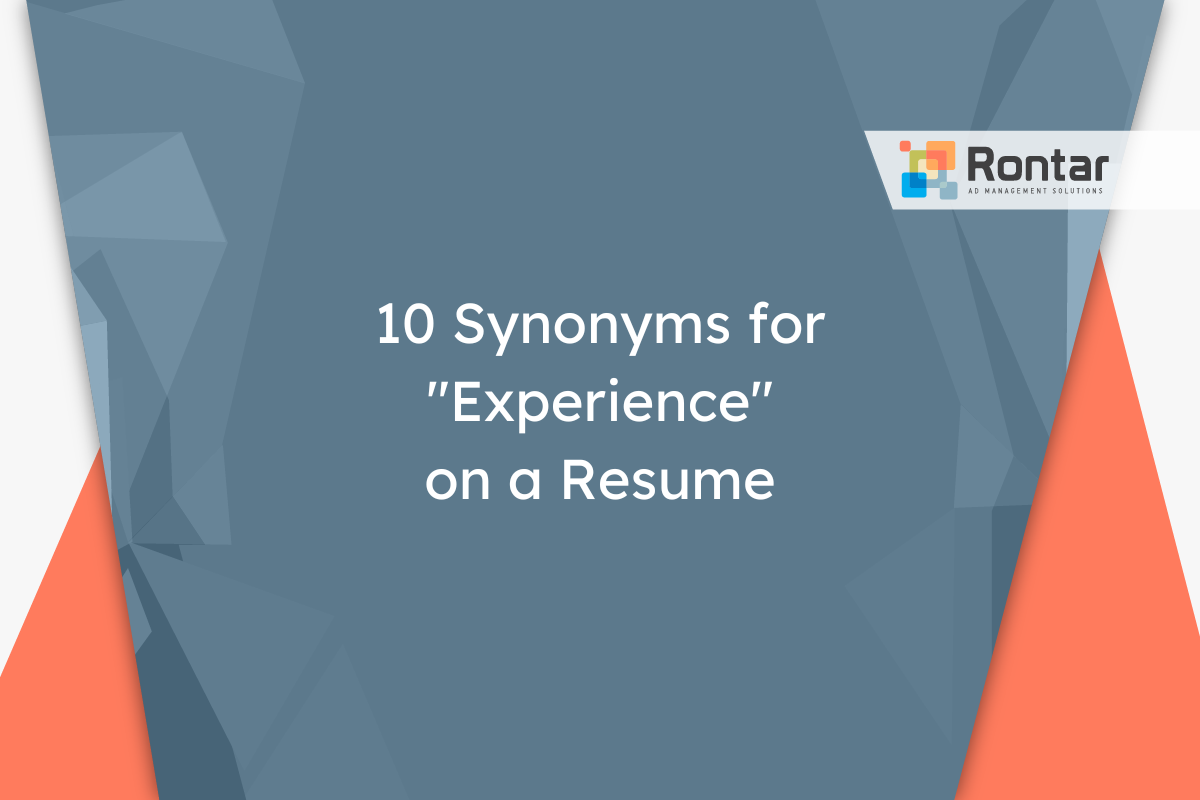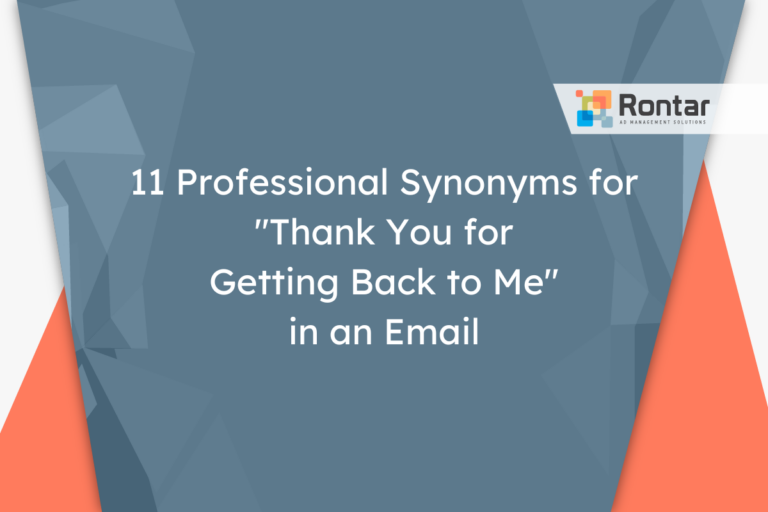10 Synonyms for “Experience” on a Resume

When you’re writing a resume, using the word “experience” is common, but it might not always be the best choice.
This article introduces ten different words you can use instead of “experience” to make your resume stand out. Each alternative is explained with examples of when it’s most effective. This will help you better describe your skills and achievements to potential employers.
Is “Experience” a Good Resume Word?
Yes, “experience” is a good word to use on a resume. It clearly shows what you have learned or done in the past, which could help you in the job you are applying for. By using this word, you let employers know that you have previous knowledge or skills in a specific area. However, the effectiveness of this word depends on how it is used and in what context.
For example, when listing past jobs or projects, it’s more effective to detail what you accomplished or learned during these experiences. This gives employers a clear picture of your capabilities. Here’s how you might use “experience” in a sentence on your resume:
Experience managing a team of 10 in a fast-paced retail environment, resulting in a 20% increase in customer satisfaction.
Let’s take a closer look at the pros and cons of using this phrase:
Pros:
- It’s a direct way to convey your past roles or activities.
- Helps to summarize your background effectively.
- Easily understood by employers looking for relevant backgrounds.
Cons:
- It can be too general and not specific enough about what you accomplished.
- May be overused, making it harder for your resume to stand out.
- Doesn’t imply the level of success or impact in previous roles.
Considering these points, you might want to use an alternative phrase to “experience” on your resume, especially if you’re aiming to make your application stand out or to highlight specific achievements more clearly. Sometimes, using synonyms or alternative words can help you be more specific about your skills, roles, and accomplishments. It allows you to tailor your resume more closely to the job description, making it clear why you are the right fit for the position.
10 Other Ways to Say “Experience” on a Resume
When updating your resume, it’s useful to know different ways to express your experience. Here are ten alternatives that can help your resume stand out:
- Skillset
- Expertise
- Proficiency
- Background
- Knowledge
- Competence
- Track Record
- Work history
- Accomplishments
- Practice
1. Skillset
Using “Skillset” instead of “experience” puts a focus on the specific abilities you have developed. This alternative is more about the range of skills you’ve gained rather than where or how you gained them. It’s a great choice when you want to highlight your abilities upfront.
This alternative is better suited for resumes where specific skills are more important than the jobs you’ve had. It’s especially useful in technical or professional fields where particular skills are the main qualifications for the job.
Here are two examples:
Skillset includes advanced project management and leadership capabilities.
Skillset in software development with proficiency in Java, Python, and C#.
2. Expertise
“Expertise” signals deep knowledge or skill in a particular area. It suggests you’re not just familiar with a subject, but you’re an authority on it. This word carries a formal and professional tone.
Use this synonym when you want to emphasize your high level of skill or knowledge in a specific area. It’s ideal for positions that require specialization or extensive experience in a field.
Sample uses include:
Expertise in digital marketing, including SEO and social media management.
Expertise in conflict resolution and employee management.
3. Proficiency
Choosing “Proficiency” highlights your capability and high level of skill in using tools, languages, or frameworks. It’s slightly more specific than “experience” and suggests practical ability.
This word is a better fit when you need to show you’re not just familiar with something, but you can also use it effectively. It’s great for jobs requiring specific tool or language use.
For example:
Proficiency in Adobe Creative Suite for graphic design projects.
Proficiency in multiple programming languages including Python and Ruby.
4. Background
Using “Background” as an alternative to “experience” broadens the scope to include your education, work history, and any relevant personal experiences. It’s a general term that encompasses more than just professional life.
This alternative is useful when your education or personal projects are just as important as your work history. It’s a good choice for entry-level positions or careers that value diverse experiences.
Examples of use:
Background in both journalism and digital content creation.
Background includes a Master's degree in Environmental Science and two years of field research.
5. Knowledge
Choosing “Knowledge” focuses on what you know rather than what you’ve done. It communicates that you have a theoretical understanding of a subject.
It’s particularly effective when applying for academic positions or roles where theoretical knowledge is valued over practical experience. It suits situations where you want to emphasize your understanding of concepts.
Here are some samples:
Knowledge in renewable energy trends and policies.
Knowledge of modern web development practices and standards.
6. Competence
“Competence” implies you have the necessary skills and ability to do something well. It’s similar to “proficiency” but with a slightly broader scope, including understanding and effectiveness.
This term is best used when the job requires a generalist rather than a specialist. It’s perfect for roles where versatility and adaptability are key.
Examples include:
Competence in managing teams and projects to meet tight deadlines.
Competence in applying analytical skills to solve complex problems.
7. Track Record
“Track Record” focuses on your history of achievements. It shows not just that you’ve done things, but you’ve done them well. This word has a formal and professional tone.
This alternative is ideal when you want to highlight successes or metrics that prove your capabilities. It works well for senior-level positions where past results are a reliable indicator of future performance.
For example:
Track record of increasing sales by 30% year-over-year.
Track record in leading successful product launches and marketing campaigns.
8. Work history
While similar to “experience,” “Work history” is more focused on the places you’ve worked and the roles you’ve held. It’s straightforward and practical.
This synonym is best for a resume that needs a clear, chronological list of jobs without the need for extra details on specific skills or achievements. It’s suitable for more traditional or conservative industries.
Here are two examples:
Work history includes five years in customer service management.
Work history in various leadership roles throughout the tech sector.
9. Accomplishments
“Accomplishments” highlights the achievements or outcomes you’ve secured through your work. It suggests not just participation, but excellence and contribution.
Use this word when you want to focus on what you’ve achieved, especially if those achievements are measurable. It’s excellent for roles where results are highly valued over the process.
We recommend these samples:
Accomplishments include winning the Company Excellence Award for innovation.
Accomplishments feature leading a team to exceed sales targets for six consecutive quarters.
10. Practice
“Practice” refers to the application or exercise of skills in a regular manner. It implies repetition and habitual work. Although less common, this term can add a fresh angle to describing your experience.
This alternative is particularly fitting for professions where ongoing skill refinement and consistency are crucial, such as in the medical, legal, or creative arts fields.
Examples to consider:
Practice in pediatric healthcare for over a decade.
Practice as a senior graphic designer specializing in brand development.
Choosing the right synonym or alternative for “experience” can transform how your resume is perceived. Using examples and being specific about your skills, expertise, or work history can make a significant difference. Remember, each option has a unique flavor and suitability, depending on the job you’re applying for and the impression you want to leave. We recommend experimenting with these alternatives to find the best fit for your resume.
Final Thoughts
Choosing the right word to describe your professional history is crucial for making a strong impression with your resume. Words like “Skillset,” “Expertise,” and “Accomplishments” serve different purposes and can highlight various aspects of your professional journey more effectively than just “experience.” By considering these synonyms, you can better match your resume to a job description and stand out to employers.






